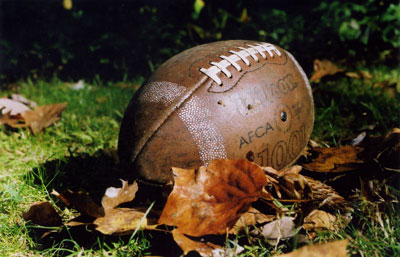All Nonfiction
- Bullying
- Books
- Academic
- Author Interviews
- Celebrity interviews
- College Articles
- College Essays
- Educator of the Year
- Heroes
- Interviews
- Memoir
- Personal Experience
- Sports
- Travel & Culture
All Opinions
- Bullying
- Current Events / Politics
- Discrimination
- Drugs / Alcohol / Smoking
- Entertainment / Celebrities
- Environment
- Love / Relationships
- Movies / Music / TV
- Pop Culture / Trends
- School / College
- Social Issues / Civics
- Spirituality / Religion
- Sports / Hobbies
All Hot Topics
- Bullying
- Community Service
- Environment
- Health
- Letters to the Editor
- Pride & Prejudice
- What Matters
- Back
Summer Guide
- Program Links
- Program Reviews
- Back
College Guide
- College Links
- College Reviews
- College Essays
- College Articles
- Back
How Young?
In 2010, a football player named David Sillis verbally committed to USC. You might think David was just another outstanding high school player committing to another stellar USC recruiting class. It is common for high school athletes to verbally commit before signing day, but David committed at age thirteen. Yes, almost unbelievably, at the age of thirteen, David had already committed to The University of Southern California. I have studied college recruiting by conducting research with high school students and analyzing two articles. The first article - “Good sport? Should colleges recruit young kids to play sports?” from WR News and my second article came from The New Haven Register, “Basketball: CIAC, AAU each have pros and cons in recruiting picture.”
David is a quarterback; a top recruit in the country. This is not the first time something like this has occurred and not just in football. It is rare, but maybe once a year as I am watching ESPN, they do a story on a young star that has verbally committed to a school.
Both articles indicate pressure is a big factor in a recruit’s choice. David Sillis was hounded constantly. David saw cameras around at practice and the sports media pursued him. Top players on AAU basketball teams are also hounded with reporters interviewing and writing articles about them. The prep basketball article reminds us how others can influence a school decision. For example, your coach, your teammates, your friends, and sometimes even your parents all play a part. I support the idea of an athlete playing on a club team, but athletes should also play on a high school team.
High school and club basketball have some major differences. On one hand, club basketball is a fast and sure way to get looked at by college scouts, because you play with other talented athletes. Many players are recruited more during the summer rather than the winter/ high school season. Competing with and against the best talent in the country, which leads to recruiting and scholarships, top recruits can show off their skills. Club basketball is a business which can turn into a stream of money like clothing deals with Nike, Adidas, Jordan, or Reebok. Money and deals can be bad for a player because it puts pressure on them and their team to win and be successful.
On the other hand, regular high school basketball teaches many good traits while a player can have a laid back life style. For example, teamwork is taught in club basketball, but it is not the top priority due to the focus on success and getting recruited. Teamwork can be taught better in high school because no matter what happens, everyone is one unit and one can go only as far as the person next to them wants to go. Club basketball lacks fundamentals; yet in high school competition, sometimes the most athletic team doesn’t always win. In club basketball, the fastest and strongest team wins.
I gave my survey to high school students, I asked several questions about early recruiting such as, “What do you think should be the minimum age a player can be recruited and why?” One subject in my survey stated, “Sixteen, your junior year, because before then you are not mature and it gives the player time needed to develop their skills.” My personal opinion is sixteen because if you recruit any earlier, then the recruit might change his/her mind and decide they do not like that sport.
Another question on the survey, “Do you think being recruited early influences a player’s behaviors?” Almost half the subjects responded, “Yes, if they aren’t truly ready, it could make them too proud and not play as well as they could.” In other subject’s views, they stated, “Yes because there’s more pressure to perform.” I agree with these answers because if a player verbally commits to a school before age sixteen, then the recruit gains pressure and either doesn’t perform well and/or they wouldn’t be able to enjoy the sport. Overall, I feel early recruiting hurts more than it helps.
It will be interesting to see what happens to these young athletes as they get older and mature. I will watch for David Sillis. Will his future be bright or will the pressure get to him?
I conclude, the minimum age for college athletic recruiting should be sixteen because of pressure, performance, and losing a teenage life style.
Work Cited
Chrisholm, Henry. "BASKETBALL: CIAC, AAU Each Have Pros and Cons in Recruiting Picture." New Haven Register [New Haven, CT] 10 Aug. 2012: n. pag. Print.
“Good sport? Should colleges recruit young kids to play sports?” WR News, Senior Edition [including Science Spin] 26 Mar. 2010: 3. Student Resources in Context. Web. 3 Oct 2012.
Document URL
http://go.galegroup.com/ps/i.do?id=GALE%7CA222485684&v=2.1&u=salt89600&it=r&p=GPS&sw=w

Similar Articles
JOIN THE DISCUSSION
This article has 1 comment.
